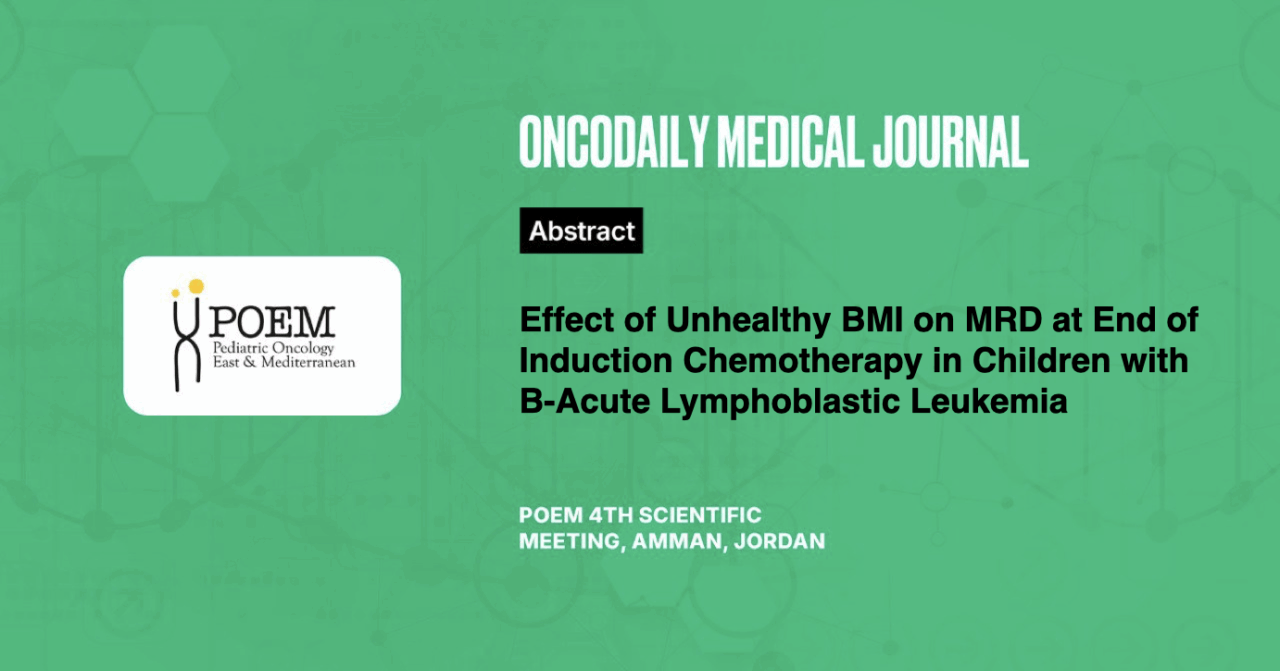Effect of Unhealthy BMI on MRD at End of Induction Chemotherapy in Children with B-Acute Lymphoblastic Leukemia
Abstract
Introduction: Acute lymphoblastic leukemia (ALL) is the most common childhood cancer, and its treatment often involves intensive chemotherapy regimens. One crucial aspect of treatment response is the presence of minimal residual disease (MRD) after induction therapy, which is a strong predictor of relapse and overall survival. Body mass index (BMI) has been suggested as a potential factor influencing treatment outcomes in pediatric acute lymphoblastic leukemia, but the relationship between BMI and minimal residual disease is not well-established. Objective: This study is the first of its kind in the Middle East, aiming to investigate the effect of BMI on minimal residual disease in children with B-acute lymphoblastic leukemia following induction chemotherapy.
Methodology: The study was performed as a single-centre, observational, prognostic, retrospective, and prospective Cohort study. All children diagnosed with B-ALL between 2018 and 2023 were enrolled in the study. BMI was categorized based on WHO standards, and MRD was assessed using flow cytometry. Other variables, including gender, age, BMI at diagnosis, and MRD at the end of induction chemotherapy, were collected and analyzed using the Chi-square test.
Results: Of the 173 patients, 19.5 % were underweight, 57% normal weight, and 23.5 % overweight /obese. Out of all patients, 15% (n=26) had positive MRD post-induction chemotherapy. Nearly half of the +ve MRD patients (58%) had normal BMI for age and sex, followed by 19 % underweight and 15 % from severely obese children, with no significant statistical differences. However, overweight BMI was significantly higher in the relapse group (18.8%) in comparison to the non-relapse group 5% (p=0.033). Twenty-seven percent of positive MRD patients relapsed later, in comparison to only 6% relapse among the five MRD patients (p=0.001).
Conclusions: Unhealthy BMI at diagnosis showed no significant impact on MRD at the end of induction chemotherapy, however, overweight BMI was significantly correlated with increased risk of relapse. BMI should be considered in future risk stratification for treatment plans.





